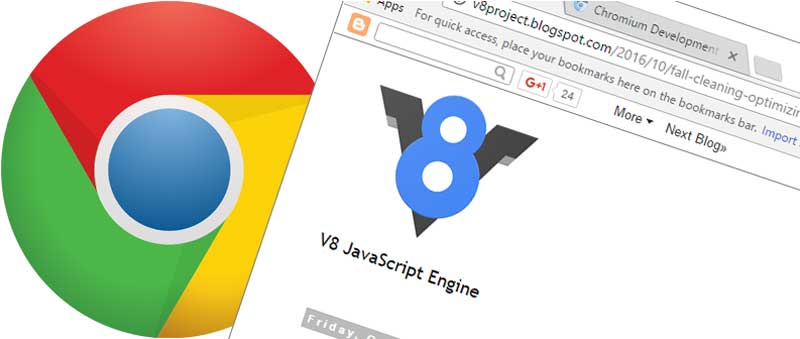 NEWS
NEWS
 NEWS
NEWS
 NEWS
NEWS
After years of complaints about its Chrome web browser’s slow loading of web pages, Google Inc. is promising that it will soon fix the problem.
The average website that web visitors read on personal computers and mobile devices may contain upwards of two megabytes, with 10 percent of that thanks to complex scripts. This increasing page size, and the ever-increasing size of scripts to make web pages more interactive and to serve ads, has been bogging the web down. To combat this, the engineering team for Google Chrome has been working on an update that will help speed things up by using memory more efficiently.
An upcoming Google Chrome update (Update 55) due out on Dec. 6 will include an upgraded scripting engine called the V8 JavaScript Engine. The aim is to deal with the ever-increasing memory needs of web pages that can swamp mobile devices such as smartphones and lightweight tablets where memory space is at a premium.
According to the team working on V8, this update will “significantly [reduce] the memory footprint of several websites that were identified as representative of modern web development patterns.”
Amid these websites the team identified commonly visited web pages such as Imgur, Reddit, Twitter, YouTube and the New York Times to test against.
Figure 4 from the V8 optimization blog, showing the total memory use reduction since M53
With the script optimization in place, engineers discovered that some script-heavy websites loaded much more easily. For example, the New York Times mobile website saw a 66 percent reduction in total memory usage and the average for most of the tested sites was approximately a 50 percent reduction.
According to Wired, in 2014 47 percent of consumers expected web pages to load in 2 seconds or less, and 40 percent would abandon web pages that took more than 3 seconds.
Too much memory usage by complex scripts on a web page can slow down its load time, appearing as lag to the user as the web’s scripts “think” slowly while trying to animate content or react to user input. Developers use JavaScript to power most interaction with users on the web and the more scripts, the greater the chance that things slow down.
This optimization will give developers more room to work in—providing more of that critical space to help user experience on mobile—while also helping script-heavy pages load more quickly on mobile devices with less memory available.
For further details on the V8 JavaScript Engine, see Google’s blog post, “Fall cleaning: Optimizing V8 memory consumption.”
Support our open free content by sharing and engaging with our content and community.
Where Technology Leaders Connect, Share Intelligence & Create Opportunities
SiliconANGLE Media is a recognized leader in digital media innovation serving innovative audiences and brands, bringing together cutting-edge technology, influential content, strategic insights and real-time audience engagement. As the parent company of SiliconANGLE, theCUBE Network, theCUBE Research, CUBE365, theCUBE AI and theCUBE SuperStudios — such as those established in Silicon Valley and the New York Stock Exchange (NYSE) — SiliconANGLE Media operates at the intersection of media, technology, and AI. .
Founded by tech visionaries John Furrier and Dave Vellante, SiliconANGLE Media has built a powerful ecosystem of industry-leading digital media brands, with a reach of 15+ million elite tech professionals. The company’s new, proprietary theCUBE AI Video cloud is breaking ground in audience interaction, leveraging theCUBEai.com neural network to help technology companies make data-driven decisions and stay at the forefront of industry conversations.